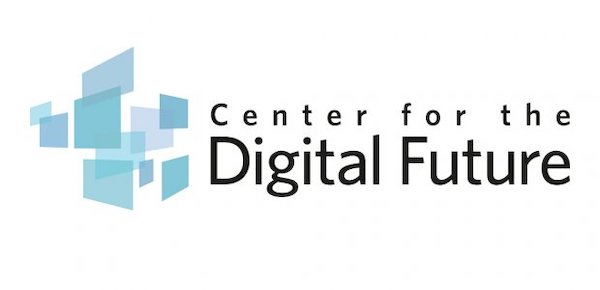As in every edition since 2000, the Digital Future Report examines the changing uses and opinions of Americans regarding new technologies. The report is produced by the Center for the Digital Future, a research and policy analysis center within the Annenberg School of Journalism and Communication at the University of Southern California (USC).
The study is divided into 5 main themes: internet users and non-users, media use and trust, consumer behavior, communication patterns, social effects. It includes 182 questions.
Here are the major trends emerging from the 2016 report:
1. The Internet increasingly important in the American political process The 2016 report highlights major trends in American digital society. First, the growing importance of the internet in the political process, both for knowledge and forempowerment. Indeed 41% say that the internet will increase the consideration of public opinion by politicians, 69% that the internet helps people understand politics better, 41% that the internet makes it easier for people to intervene in government actions, and 45% that everyone can gain political influence through the internet.80% of Internet users say that the Internet has become more important for election campaigns. The report compares the decline of traditional media (25% would not miss the paper edition of their newspaper if it disappeared) to conclude that the Internet plays an increasingly important role in political communication.
2. Online information perceived as partially reliable Internet users trust less and less the information they find online.40% of Internet users say that most or all online information is reliable (down) but information available on social networks is not or not very reliable according to 48% of Internet users. Moreover, even search engines and official websites are less and less perceived as reliable sources of information. At the same time 85% say that the internet is an "important" or "very important" source of information.
3. Non-internet users are increasingly using the Internet out of conviction Among non-users of the Internet, only 25% have ever gone online before, the lowest rate in survey history. Not going online is relatively correlated with age; however, 19% of non-users aged 35-54 say they are not interested in the Internet. For non-users over 55, lack of access to the internet is the primary reason given (33%, ahead of skills or interest).4. No more regulation of the Internet, but less tolerance of speech A small percentage of Americans think the government should regulate the Internet more; this percentage is down from the previous year. 38% agree that it is safe to express political opinions on the Internet (down slightly from last year). 71% believe that people should be free to criticize the government on the Internet (also down slightly). But this figure rises to 56% when it comes to expressing even extreme ideas (down two points) and 26% are against (up).5. The conflicting nature of the Internet and social relations The Digital Future project studies continue to show a strong contrast between behaviors and opinions on communication via the Internet and social networks.A large and growing share of Internet users consider that technology plays an important role in their social relationships: 60% say that the Internet is important for maintaining social relationships, and 65% have the same opinion about texting.
Paradoxically, Internet users report spending less time physically with their families. And 63% (3rd consecutive year of increase) say they have been ignored because of time spent on a mobile device by someone in their household.
Some additional figuresWe discover in this survey that 90% of Americans use the Internet (67% in 2000), at a rate of 23.5 hours per week (i.e. 2.5 times more than in 2000), including 17.2 hours at home (6 times more than in 2000).
92% have a home connection (not including mobile connection). 83% of American Internet users connect with their cell phone: this share increases every year. For 45% of Americans, the cell phone is the preferred connection terminal.More men than women use the Internet (92% and 88% respectively). This has been a constant since the beginning of the Digital Future Report surveys.Internet use increases with income, but since 2014, more than 3/4 of people earning less than $30,000 a year are Internet users.
Among Internet users, the proportion of those who think that theInternet makes the world a better place drops to 51% and has lost 7 points in one year. On the contrary, 16% think that the Internet is making the world worse and this proportion tends to increase.
For the first time in the history of the Digital Future surveys, the Internet is considered as a source of entertainment in the same proportions as TV (75%).
44% of adults say that children spend too much time online (39% for TV and 36% for video games). 86% of children say it is very or extremely important to go online for schoolwork. 54% of parents say that Internet use has had a positive impact on their children's grades. 48% of parents use the Internet ban as a punishment.





